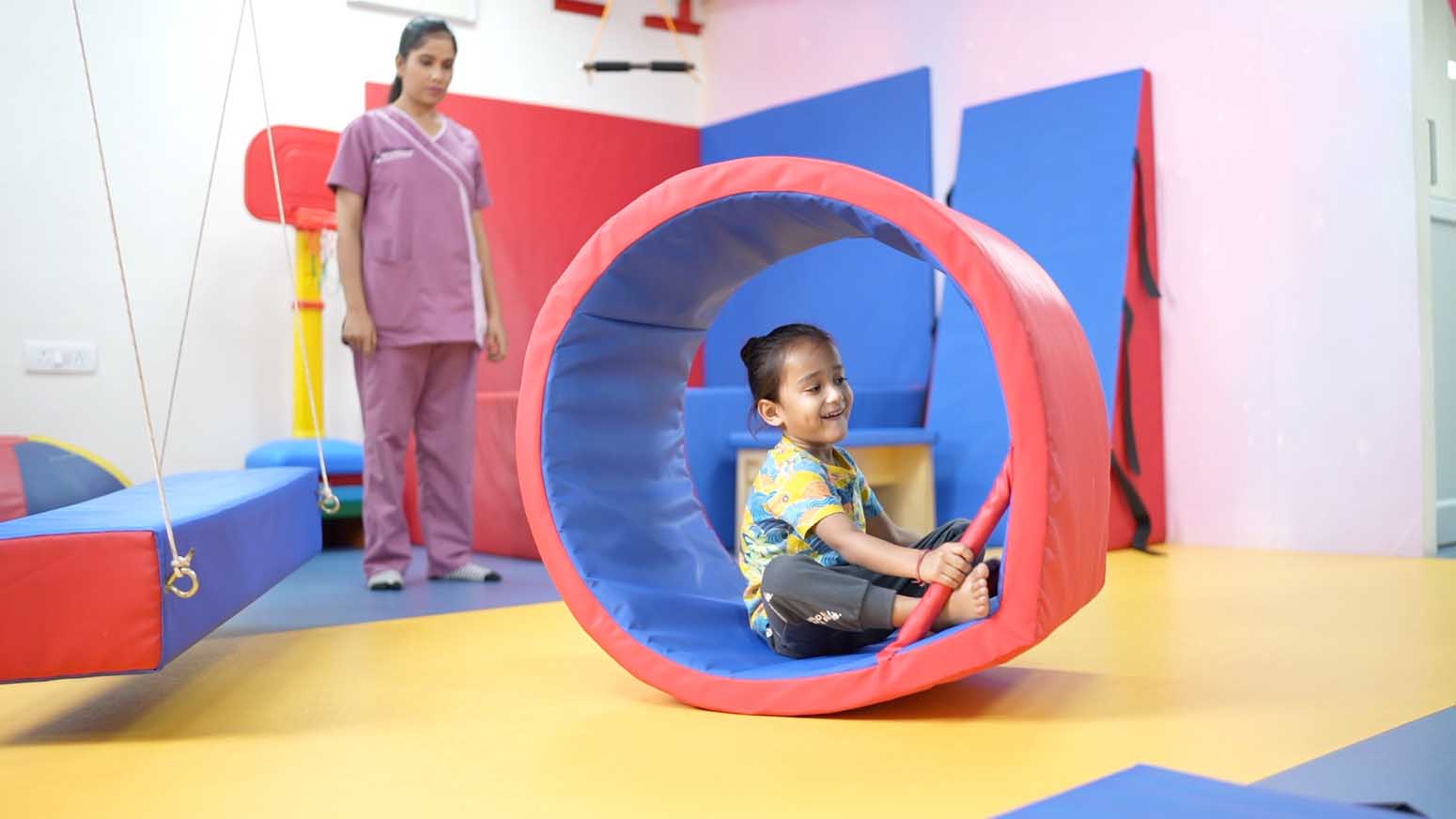Sensory Integration Therapies MileStone Therapy
At Mile Stone Therapy, we specialize in Sensory Integration Therapy to help children who experience difficulties processing and responding to sensory stimuli. Whether your child is overwhelmed by certain textures, sounds, or movements, our sensory-focused therapies aim to create a balanced, calm, and organized sensory experience that enhances everyday functioning.

What is Sensory Integration Therapy?
Sensory Integration Therapy (SIT) is a specialized therapeutic approach designed to help children improve how their brains process and respond to sensory information. This therapy focuses on sensory systems like touch, sound, sight, balance, and body awareness. It encourages the brain to organize and interpret sensory signals more effectively, helping children respond appropriately to the world around them.
Sensory processing issues often present as difficulty handling sensory input, which may lead to behaviors such as overreaction to stimuli, underreaction, or avoiding certain sensations altogether. Sensory Integration Therapy helps children become more adaptable and confident in their sensory responses.
At Mile Stone, we focus on:
Improving Sensory Processing
Helping children understand and appropriately react to sensory stimuli like light, noise, textures, and movement.
Enhancing Motor Coordination
Encouraging better balance, coordination, and fine motor skills through targeted sensory activities.
Promoting Emotional Regulation
Supporting emotional stability by helping children manage overwhelming sensory experiences.
Increasing Self-Regulation
Teaching strategies to cope with sensory overload, improving focus, and reducing anxiety.
Why is Sensory Integration Therapy Required?
Sensory Integration Therapy is essential for children who experience Sensory Processing Disorder (SPD), where their brain struggles to make sense of sensory information. This may lead to challenges in:
- Social interactions: Difficulty participating in group activities or games due to sensory distractions.
- Emotional stability: Overreacting or shutting down in response to sensory input.
- Motor skills:Clumsiness or difficulty performing everyday tasks due to poor body awareness or coordination.
- Learning challenges:Difficulty focusing or sitting still in class because of sensory overwhelm.

How Our Program Works
At Mile Stone Therapy, our Sensory Integration Therapy program is designed to be engaging, fun, and tailored to each child's needs. Our therapists use a combination of structured and play-based activities to help children gradually adapt to sensory stimuli, improving their sensory processing abilities.
- Assessment: We begin with a thorough evaluation of your child’s sensory processing challenges, identifying areas of need and setting goals.
- Individualized Therapy Plan: Based on the assessment, a customized therapy plan is created to target specific sensory issues, like hypersensitivity or under-sensitivity.
- Therapeutic Techniques: Using a range of activities—such as swinging, jumping, tactile play, and sensory games—our therapists help children process sensory information in a controlled, supportive environment.
- Parent Involvement: We provide guidance for parents, helping them integrate sensory-friendly strategies into everyday routines at home and school.
- Monitoring and Adjusting: Progress is regularly reviewed, and the therapy plan is adjusted based on your child’s evolving needs and development.
Who Can Benefit from Sensory Integration Therapy?
Children who may benefit from Sensory Integration Therapy include those who experience:
- Sensory Processing Disorder (SPD)
- Autism Spectrum Disorder (ASD)
- Attention-Deficit Hyperactivity Disorder (ADHD)
- Cerebral Palsy
- Developmental delays (in motor skills or speech)
- Learning disabilities with sensory challenges
- Anxiety disorders